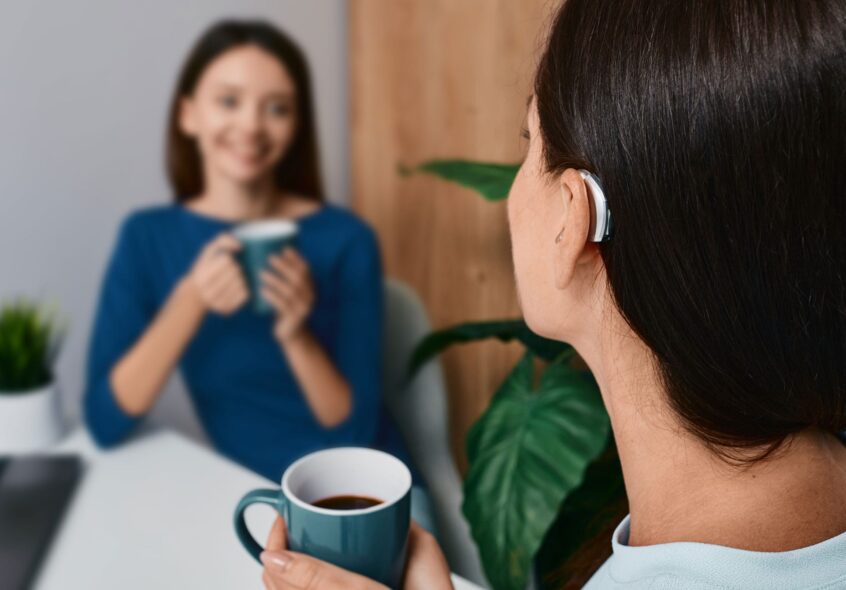It turns out that omega-3 fatty acids, often found in oily fish such as salmon or taken in a supplement to protect your heart, may also have a protective benefit for your hearing. That’s right. New research shows middle-aged and older people with higher blood levels of omega-3s were less likely to report hearing loss. Learn more about this research … Read More
5 Questions and Answers About Audiologists
An audiologist is a doctoral-level professional who can diagnose and treat hearing loss, as well as recommend and fit prescription hearing aids. These highly skilled professionals can significantly impact your success in wearing hearing aids. If you notice you’re having problems hearing, it may be time to have a diagnostic hearing evaluation. But who can you turn to perform this … Read More
How Hearing Loss Affects Income
Hearing loss has been consistently associated with lower levels of employment and income, but hearing aids can help. In fact, hearing aids can reduce the risk of income loss by 90 to 100% for those with milder hearing loss. Hearing loss is one of the most common health conditions in the United States. In fact, because of an aging population, … Read More
Factors Affecting Age-Related Hearing Loss
A new study shows that certain factors, such as weight, smoking behavior and hormone exposure, are associated with age-related hearing loss and vary by sex. While more research is needed, most older adults could benefit from a diagnostic hearing evaluation every three years beginning at age 50. According to a recent study published in the open-access journal PLOS ONE, certain … Read More
Video Gaming May be Putting Players at Risk for Hearing Loss
Video gaming is popular the world over, but a recent study shows that gamers may be putting their hearing at risk. Here are some tips to help gamers reduce the risk of hearing loss while enjoying the game. If you play video games, or you have kids or grandkids who do, you may want to listen up! According to a … Read More
Risks of Untreated Hearing Loss
The risks of untreated hearing loss go far beyond not being able to hear well. Hearing loss also has been closely associated with depression, dementia, tinnitus, and falling. This blog highlights those connections and explains why it’s so important to have a diagnostic hearing evaluation. Did you know that untreated hearing loss is associated with many other medical, cognitive and … Read More
Preventing Noise-Induced Hearing Loss
We’re exposed to loud noises every day, but when those noises are extremely loud, or we’re exposed to them over and over, they can cause what’s called noise-induced hearing loss. Now a new study sheds light on the role of zinc in NIHL, and possible ways to prevent it. It’s one of the most common causes of hearing loss—exposure to … Read More
Travel Tips for Those with Hearing Loss
Will you be traveling this summer by plane? Here are a few tips to ensure you can hear all the important travel instructions at the airport. These tips could help make your trip safer and more enjoyable. Planning a summer getaway? If so, you wouldn’t dream of leaving your sunglasses, sunscreen, swimsuit or passport behind. But if you have hearing … Read More
Rural Populations at Greater Risk for Hearing Loss
A new study has identified those who live in rural America at higher risk for hearing loss. Why? Probably because many in these areas work in industries that consistently expose them to loud noises, like agriculture, making prevention the best course of action. A study recently published in the journal Lancet Regional Health-Americas, is one of the first to estimate … Read More
Can Regular Hearing Aid Use Reduce Risk of Death?
You know that hearing aids can help you hear better. But did you know a new study has found a lower risk of death in those with hearing loss who regularly wear their hearing aids? Read on to learn more about this new scientific study and the many benefits of hearing aids. Research continues to point to the many benefits … Read More











